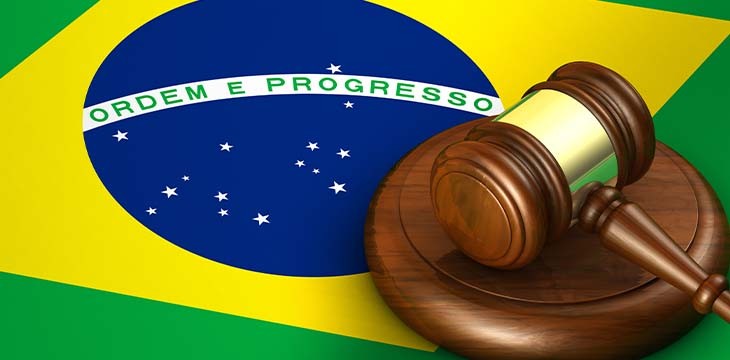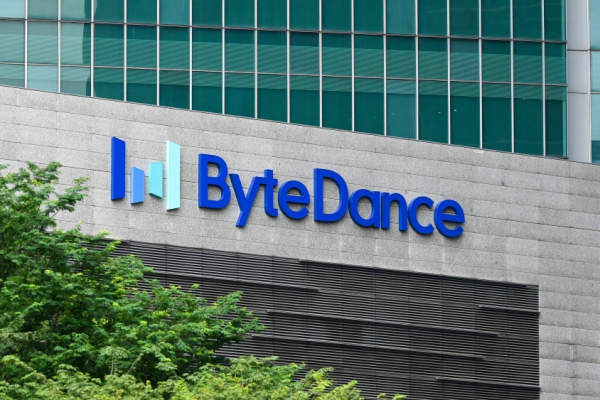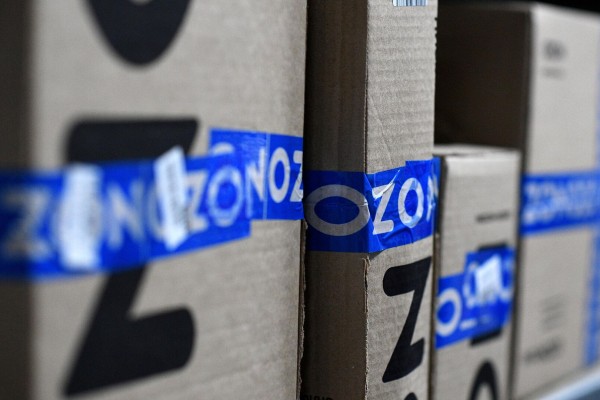With digitalization, the power of tech giants such as Google, Amazon, Apple, Microsoft and Facebook (banned and designated as extremist in Russia), which operate not only as intermediary platforms but also as providers of goods and services across multiple markets, has also increased significantly. The high concentration of the digital economy raises concerns for regulators around the world and forces them to look for new approaches to develop optimal antitrust tools. How the BRICS plus countries can coordinate their approaches to regulating digital markets and what Brazil's experience in this regard is, explained Alexandre Barreto de Souza, General Superintendent of the Administrative Council for Economic Defense of Brazil (CADE). On April 11, he delivered an honorary report on "Digital Economy and Competition Protection: International Approaches and Brazilian Experience"at the XXIV Yasin (April) International Academic Conference on Economic and Social Development at the HSE. The visit of the General Superintendent was organized by the BRICS International Competition Law and Policy Centre. The meeting was moderated by Alexey Ivanov, Director of the Centre.
In his report Alexandre Barreto de Souza gave an overview of antitrust cases against digital giants in global practice and mentioned the CADE decision on the recent iFood case. He also detailed the problematic aspects of digital intermediary platforms that provide their infrastructure to two parties that interact directly. This distinguishes platforms from supermarkets, where product sellers and customers interact not with each other, but with the store.
One of the features of digital platforms is network effects, a phenomenon in which an increase in the number of users or participants increases the value of a product or service. On digital platforms, an increase in supply-side participants (e.g. cab drivers) leads to an increase in demand (passengers) and vice versa: the more passengers on a platform, the more drivers tend to cooperate with it.
Such a model can naturally lead to the dominance of one platform and make it difficult for new players to enter the market. Digital platforms proliferate into entire ecosystems and offer complementary products and services to increase the number of users. A "winner takes it all" effect arises, where the firm with the larger market share has more sales of complementary products, so its products gain more value in the eyes of consumers.
"The companies do not compete in the margins, they compete to see who takes it all. It's a completely new phenomenon for the competition agents,"
Alexandre Barreto emphasized.
The network effects of the digital economy, together with the control of big data, lead to a special level of control over markets that does not exist in traditional business sectors. Antitrust authorities are dealing with new types of anti-competitive practices, such as algorithm-driven collusion, self-preferencing, personal data breaches, etc.
"What is a platform? In my opinion, a platform is not a company, a brand, or a product. A platform is a business model or business strategy that differs from the traditional methods used by large technology companies.”
The usual regulatory toolkit is ill-suited to the digital economy. For example, standard antitrust rules assessing "consumer welfare" based on product/service prices are not applicable to assessing the market power of digital platforms. In addition, conditions in digital markets change rapidly and often unpredictably, requiring a faster response.
There is a consensus in the antitrust community on the need for ex ante regulation as a supplement to the application of antitrust laws to allow for swift and effective action by regulators, said Alexandre Barreto.
According to CADE's General Superintendent, identifying sensitive competition issues in social networks, search engines, marketplaces and app stores, even at the diagnostic stage, cannot be the same for every type of platform. The regulation that is proposed as a solution differs even more significantly.
"I think that it is very relevant to dismiss the idea that there is a single regulatory system or a structure ex-ante for digital platforms. Even if the platforms are based worldwide, maybe the solution proposed by the United States cannot resolve the problems in Russia, Brazil or South Africa. A common point now is that antitrust intervention ex post could be complemented, but not replaced by regulatory regimes ex-ante. I think that both can work together.”
The topic of adapting antitrust to the realities of the digital economy was developed by Alexey Ivanov. One possible way to apply competition law in the context of developing digital ecosystems could be ecoantitrust, a method developed by the BRICS Competition Centre together with the International Institute for Applied Systems Analysis (IIASA). Ecoantitrust uses analogies and concepts from biology and ecology and makes regulatory mechanisms more flexible and adaptive. These qualities also distinguish modern digital platforms.
"As mentioned earlier, a platform is a business strategy, not just a fixed, stable model. It is an adaptive strategy that tries to account for any market variations and can change depending on time and environment. At the same time, antitrust regulators are not as adaptive. The law does not give regulators flexibility, you have to follow certain schemes."
Given this, Alexey Ivanov raised the question of how seriously BRICS regulators are ready to approach the transformation of antitrust regulation and what specific actions could be taken: "If we go in this direction, is it preferable to synchronize BRICS cooperation at the level of developing new antitrust principles or adopting rules in the style of the European Digital Markets Act (DMA)?"
"When we talk about the BRICS countries, I see that it is quite possible to create common guidelines. Not strict rules, but general guidelines designed with respect for the particularities of different countries, their cultures and legislations,"
replied Alexander Barreto.
The best strategy for antimonopoly regulators is to expand the use of soft law instruments and combine ex post and ex ante regulation, agreed Andrey Tsyganov, Deputy Head of the FAS Russia.
Vikas Kathuria, Associate Professor at BML Munjal University Law School, on the other hand, suggested that principles are too general a concept.
"It seems easier to develop principles than specific rules. "Markets have to be fair" - no one can disagree with that, can they? But what does fairness mean in reality? It would take a lot of specialists, economists, IT analysts, to establish whether there is one in the marketplace. And what about issues of interoperability or cybersecurity?"
A final emphasis on the need to develop new regulatory models was made by Tembinkosi Bonakele, Professor, Wits University, Ex-commissioner of the South African Competition Commission.
"The EU and the UK are leaning toward ex ante regulation, the U.S. comes from the concept of consumer protection. We have nothing. These countries won't offer us ready-made solutions. We have to help ourselves.”
XXIV Yasin (April) International Academic Conference (YIAC) on Economic and Social Development will take place in Moscow from April 4 until April 14 2023. The Conference is held jointly with leading Russian corporations, research and consulting organizations and features a diverse agenda concerning social and economic development in Russia. The programme will include presentations by Russian and international academics, roundtables and plenary sessions with participation of members of the Government of the Russian Federation, government officials, business representatives, and leading Russian and foreign experts.




